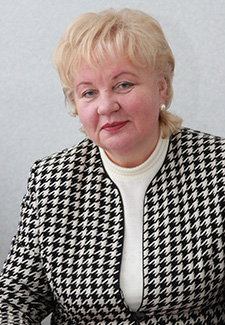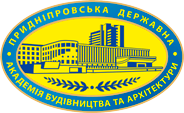Scientific profile

Doctor of technical sciences, professor
Vera
VAHRUCHEVA
Contacts and CV
Research
Current research
Past research
State registration number: 0116U004538
Date of registration: 02-03-2016
Implementation period: 01.2016 - 12.2020.
Topic: Study of the relationship between the mechanisms of structure formation and the complex of properties of building materials.
More
State registration number: 0116U004538
Date of registration: 02-03-2016
Implementation period: 01.2016 - 12.2020.
Topic: Study of the relationship between the mechanisms of structure formation and the complex of properties of building materials.
More
Publications
1. Vakhrusheva V. S., Hruzin N.V., D/G/ Malykhin. Thermal and fast reactor materials features of formation of crystallographic texture and properties in Ti-3Al-2.5 V titanium alloy during tubes manufacture. Problems of atomic science and technology. ISSN 1562-6016. PASТ. 2019. №5(123), p. 105-112.
2. Вахрушева В. С., Грузин Н. В., Влияние степени деформации при холодной прокатке труб из сплава титана на формирование текстуры и свойств. Metallophysics and Advanced Technologies. Vol. 41, No. 10 (2019). Pp. 1303–1314. https://doi.org/10.15407/mfint.41.10.1303
3. Vakhrusheva V. S., Hruzin N.V., Tiutieriev I.A., Malysh O.D. Influence of texture on mechanical properties of titanium alloy tubes. Key Еngineering Materials. Switzerland, 2020. Vol. 844, Рp. 182–187. https://doi.org/10.4028/www.scientific.net/KEM.844.182
4. Vakhrusheva V. S., Fractal model of estimating quality of cold worked fuel cladding tubes. Hruzin N.V., Tiutieriev I.A., Volchuk V. M. / Problems of atomic science and technology ISSN 1562-6016. PASТ. 2021. №5(135), p. 57-https://doi.org/10.46813/2021-135-057.
5. S. Vakhrusheva, D.B. Hlushkova, V.M. Volchuk, T.V. Nosova, S.I. Mamhur, N.I. Tsokur, V.A. Bagrov, S.V. Demchenko, Yu.V. Ryzhkov, V.O. Scrypnikov INCREASING THE CORROSION RESISTANCE OF HEAT-RESISTANT ALLOYS FOR PARTS OF POWER EQUIPMENT. PROBLEMS OF ATOMIC SCIENSE AND TECHNOLOGY (PAST), Physics of Radiation Effects and Radiation Materials Science; PAST №4, 2022) р. 137-140.
Courses
1. Physical properties and methods of metal research
The subject of the educational discipline is the study of physical properties of materials - thermal, magnetic, electric, elastic, density, internal friction, parameters of acoustic emission, as well as methods of their research. Use of these methods for solving problems in materials science Composite materials.
2. Imperfections of the crystal lattice and the physics of strength
The goal of the discipline is to gain knowledge of the problems of the physics of plasticity and strengthening of materials, the peculiarities of the structure of real crystals, the main types of imperfections of crystal lattices and their influence on the strength of materials.
3. Theoretical foundations of development of modern building systems and manufacturing technology for these systems
General ideas about the main building systems and factors involved in the development of materials for building structures, including the responsible purpose mastering by students the general principles of choosing a steel alloying system for modern metal building structures. The ability to establish the relationship between the complex of properties of rolled metal, its structure and the mode of thermomechanical processing by which it is produced.
4. Theory and technology of heat treatment of structural steels
Theoretical foundations of heat treatment and the technology of heat and combined treatmen of structural steels. Task: mastering students' choice of the type and modes of heat treatment for the production of structural materials with a given level of properties. To be able to choose the heat treatment technology and establish the relationship between the set of properties, structure and heat treatment modes.
5. Diagnostics and inspection of materials and products
The subject of the educational discipline is the study of the main types of defects formed during the production and operation of building structures. Classification of defects. Melting and casting defects. Defects in metal pressure processing. Heat treatment defects. Mechanical processing defects. Defects in the connection of metals and alloys. Operational defects. Classification of methods of non-destructive control of physical and mechanical properties of building materials. Visual-optical methods of non-destructive control of physical and mechanical properties of building materials Capillary methods of non-destructive control of physical and mechanical properties of building materials. Eddy current methods of non-destructive control of physical and mechanical properties of building materials. Magnetic methods of non-destructive control of physical and mechanical properties of building materials. Acoustic methods of non-destructive control of physical and mechanical properties of building materials. Diagnostics of the technical condition of reinforced concrete building structures. Diagnostics of the technical condition of building metal structures.
